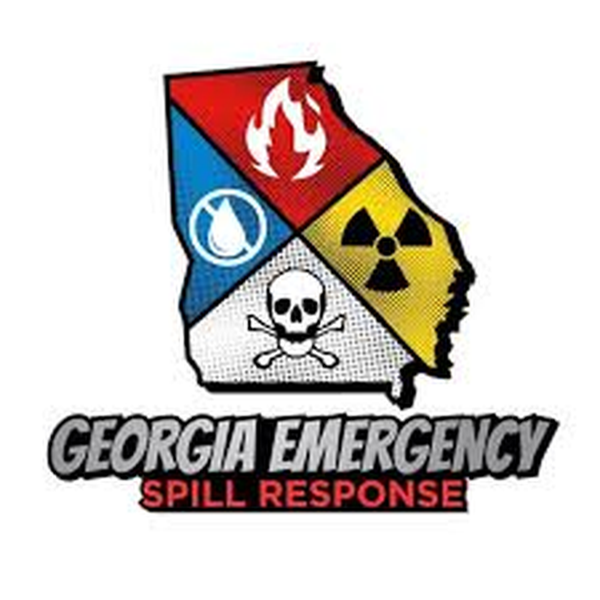Disposing of hazardous waste isn’t just about following rules—it’s about protecting people and the planet. Learn the 7 essential steps for safe, legal disposal in Georgia, from identifying waste to partnering with licensed haulers and preventing costly mistakes. Ask ChatGPT
When it comes to hazardous waste disposal, there's zero room for error. Improper handling doesn't just break the rules—it can wreak havoc on public health, contaminate the environment, and lead to severe penalties. Whether you're dealing with diesel sludge, used solvents, or chemical-soaked absorbents, getting it right is a must.
That’s why we’ve asked our team what the seven essential steps are that ensure your hazardous waste disposal process is not only legal but also safe and efficient, especially here in Georgia, where compliance standards are no joke!
1. Identify the Waste Type
Before you can handle waste, you’ve got to know what you’re working with, and it’s more than just labeling a barrel “flammable.” You need to determine if the waste meets any of the EPA's four hazardous characteristics: ignitability, corrosivity, reactivity, or toxicity.
Common hazardous waste in diesel repair and emergency response includes:
- Used oil
- Solvents
- Coolant
- Diesel particulate matter
- Contaminated absorbents
Don't guess—test. Use safety data sheets (SDS) and, if necessary, lab analysis to ensure correct classification.
2. Properly Label and Store the Waste
Labeling is your first line of defense in preventing accidents. Once you’ve identified the waste, label the containers clearly with:
- Hazard class
- Accumulation start date
- "Hazardous Waste" marking
Make sure containers are compatible with the waste, in good condition, and stored in designated hazardous waste accumulation areas. There should be no leaks, no corrosion, and definitely no makeshift lids.
Pro tip: In humid Georgia summers, keep drums shaded and ventilated to prevent pressure build-up and degradation.
3. Segregate Incompatible Materials
Mixing incompatible hazardous wastes can cause everything from violent chemical reactions to toxic gas releases. You do not want to find that out the hard way.
For example, never store acids near bases or flammable solvents next to oxidizers. Color-coded labels and dedicated storage zones go a long way here.
4. Use the Right PPE and Safety Gear
You can’t handle hazardous waste like it’s regular garbage. Protective equipment is a non-negotiable. Depending on the material, this might include:
- Nitrile gloves
- Safety goggles or full-face shields
- Tyvek suits
- Respirators or SCBA units
Make sure all personnel are trained in PPE use, emergency eyewash procedures, and spill containment protocols. And yes, training needs to be documented.
5. Maintain Accurate Records and Manifests
Documentation isn’t just a formality—it’s the law. Georgia follows federal EPA regulations, which require:
- Hazardous waste manifests (Form 8700-22)
- Biennial reporting
- Records of quantity generated and disposed
Keep those logs tight. A missing signature or incorrect code can get you fined. Worse yet, it can invalidate your chain of custody if something goes sideways.
6. Partner with a Licensed Disposal Company
Even if you’re a pro at containment and storage, hazardous waste transport and disposal should only be handled by certified haulers. Always verify that your disposal partner:
- Has a valid EPA ID
- Offers cradle-to-grave tracking
- Complies with Georgia Environmental Protection Division (EPD) standards
Georgia Emergency Spill Response works with local TSDFs (Treatment, Storage, and Disposal Facilities) to ensure your waste gets handled safely and sustainably.
7. Conduct Routine Inspections and Training
Don’t just set it and forget it. Routine inspections keep minor problems from becoming environmental disasters. Look for:
- Leaks or rusted containers
- Overflowing accumulation areas
- Expired labels
Training should be refreshed annually and cover hazardous waste handling, emergency response, and regulatory updates.
Wrap-Up: The Smarter Way to Dispose
Handling hazardous waste isn’t just about compliance—it’s about protecting people, your shop, and your community. By following these seven key steps, you create a safer workspace and a more sustainable operation.
Do you need a solid partner to manage the heavy lifting? Georgia Emergency Spill Response is your go-to crew across the Peach State for hazardous waste disposal.
To get in touch, call now for immediate assistance or message here!
